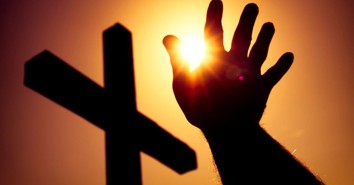Are Getting Drunk and Overeating Equal Sins?

“Margaritas, everyone!” said the worship leader from my new church as she filled plastic cups for the partygoers in her home. I was mortified, and I figured God was too.
Then I walked outside where I found our Austrian pastor making conversation and smoking a cigarette. All I could do was put on my best fake smile, bid farewell, and ease away from the party in confusion.
Maybe people thought this was appropriate in Washington, D.C., but I grew up in Mississippi, the buckle of the Bible Belt. Back home, alcohol and cigarettes wouldn’t exactly send you to hell, but they were two of the clearest indicators of a backslidden life. That’s why, when I was a teenager, I felt justified in rebuking my mother when she tried to correct me for my lack of control over my mouth.
“Mom,” I said, “I don’t drink, do drugs, smoke, or have sex. What more do you want?”
My legalistic comment to her was, in many ways, a reflection of the Southern Baptist subculture in which I grew up. Regardless of what the preachers were trying to convey, us teenagers got the message that holiness was about what you didn’t do; it was a high-stakes game of “just say no.” And now, ten years later, I was in a house full of young people who sincerely loved the Lord and were calmly sipping margaritas while hanging out with a smoking preacher. I couldn’t process it.
Thou Shalt Not Eat Dressing
After the party, I called Mark Booker, a friend and pastor, and I breathlessly recounted the scandal I had witnessed at the party. He laughed and recalled being similarly shocked when he moved from a conservative Christian environment in the Midwest to England, where Christians hung out in pubs and drank beer together after church services. This only left me more troubled.
But then, at some point in the following weeks, I recalled an old conversation with my friend Renee, back in Mississippi. Like most evangelicals, she didn’t drink; but she questioned my judgment towards a Christian family that owned a beer company.
“Gluttony is a sin too, Joshua. Are you saying that a Christian would be in sin for owning a bread company?”
She had a point. Mississippi is frequently ranked the fattest state, and the stats are borne out by the hordes of obese people everywhere you look, including the church. I’m serious—you can go to all-you-can-eat buffets on any given weekend and see adults in their XXXL Sunday best piling copious amounts of food onto their plates and then sitting down on chairs that cannot contain their massive rear ends.
These folks aren’t eating in moderation any more than drunks have an entire bottle of wine in moderation. And yet, for all the condemnation of various vices I heard from southern pulpits, I don’t recall hearing one sermon about gluttony.
Pet Sins, Pet Condemnation
We all have sins we prefer to excuse and sins we prefer to condemn. Maybe you prefer to overlook workplace corruption in the name of “not judging”; but you feel good about yourself when you spread toxic gossip about it to your coworkers. Perhaps you see divorce as permissible, but you strongly condemn homosexual relationships. The list could go on. Regardless, we’ve got to be aware of the ways our view of sin is more informed by our own standards than by the correction of the Holy Spirit through the Word. Because when our standards become our guide, we’ve really just become self-righteous.
Jesus said, “Why do you see the speck that is in your brother’s eye, but do not notice the log that is in your own eye? Or how can you say to your brother, ‘Let me take the speck out of your eye,’ when there is the log in your own eye? You hypocrite, first take the log out of your own eye, and then you will see clearly to take the speck out of your brother’s eye” (Matthew 7:3-5, ESV).
I’m not saying that sin isn’t a big deal—in every case, it is. What I’m saying is that we’ve got to be aware of our propensity to forget what a big and dangerous sin self-righteousness is.
This article was originally published on JoshuaRogers.com. Used with permission.
Joshua Rogers is an attorney and writer who lives in Washington, D.C. You can follow Joshua on Twitter @MrJoshuaRogers and Facebook, and read more of his writing at JoshuaRogers.com.
Publication date: June 3, 2016
Originally published June 03, 2016.





